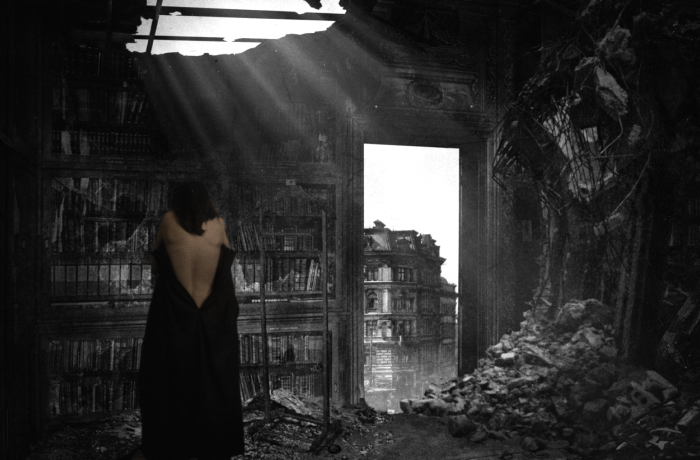
If the national symbol of Sweden is three crowns, then the international billboard of a Swedish documentary festival should be three of its films. Tempo IDFF’s program director Melissa Lindgren selected three of the festival’s best films for this year’s program of Docudays UA.
Belleville Baby, 2013, by Mia Engberg
What if Orpheus tried to bring Eurydice back – if he rewound the tragedy and tried once again, so that the story had a happy ending? But will the ancients allow him to finish a drama, even a reinterpreted one, with a happy ending?
Now his name is Vincent, he is a Parisian. She is Mia, she lives in Stockholm. There is no need to struggle for a meeting, they can simply use a telephone. But the ancient gods have modernized their punishment—they can talk to each other, but have no chance to see each other. However, there is a place for a story which they will live through together once again.
The places of their memories are at various distances from them in space and time. Vincent is mostly next to them, but time has thrown him somewhere far away. Mia, on the other hand, has separated from the space, but cannot throw away her memories about every single part of it. Together, however, they manage to put everything together and replay the now unreachable past once again. They give themselves up to each other’s memory in order to outwit the ancient gods and let their eyes meet, at least in their memories.
Even in this kind of history can be no what-ifs. It would be even more questionable to try to replay everything all over again and do something differently this time. The ancients surely knew nothing about happy endings, and even if they knew, would they really need it?
Concerning Violence, 2014, by Göran Olsson
The logical law of the excluded middle is flawed—there is room on the maps for the Third World. Yet there are many more laws in the first two which the third one, the eternal loser, has to comply with.
Nine episodes from the history of decolonization reveal the penetrating violence of its participants. Ever more lofty purposes encourage ever greater violence which denies the duel of good and evil. Every time another of Africa’s struggles for freedom takes place at home, it invariably follows the alien rules of the two first worlds. The text of the fundamental work by Frantz Fanon, The Wretched of the Earth, accompanies the descriptions of the stages of this struggle.
The struggle is invariably violent, high causes are reinforced by low means. Between different skin colors, black and white, a third one invariably appears – the red color of the blood which they have in common. Its accompaniment is always tragic and ever more dreadful; every new round of the antagonism drowns both sides ever deeper in the red; which floods the surrounding lands.
It can hardly be said that the struggle is successful. Even after the Second World fell, the Third did not manage to change its name. Not to mention the First World, which invariably dictates the rules of the game – the rules which always have something to say about violence.
Freak Out, 2014, by Carl Javér
The beginning of the last century, captured on postcards and photos, can be revived by animation, by making the pictures move, and creating a film – to find out the heroes of their time who are no less close to us and our fast-moving age; to picture another version of history of the middle class which whimsically defends its freedom, in order to recognize ourselves in it.
The small Swiss village of Ascona became a shelter for a group of young fugitives from the ways of their time. They buy a plot of land in the mountains and create a territory of freedom, gender equality, pacifism, free love and veganism there. Their way of life attracts the attention of a number of cultural and political figures of their time, from Hesse, Weber and Jung, to Krishnamurti, Lenin and Isadora Duncan.
The turbulent history of the 20th century scatters the inhabitants of Monte Verità all over the globe. The lives of every one of them will be special in their own way, but the Swiss adventure of just a couple of years will bring them together into one dramatic narrative about people and their time.
This time says much more about us than about them. These people look more like us than their contemporaries. The pictures in which we recognize ourselves are put in motion and become a film. Whatever the further history of that century was, at the beginning it was really freaked out—in a good way.